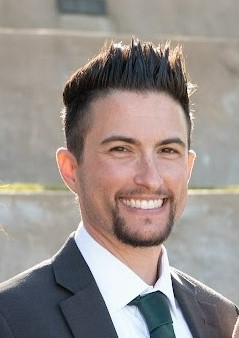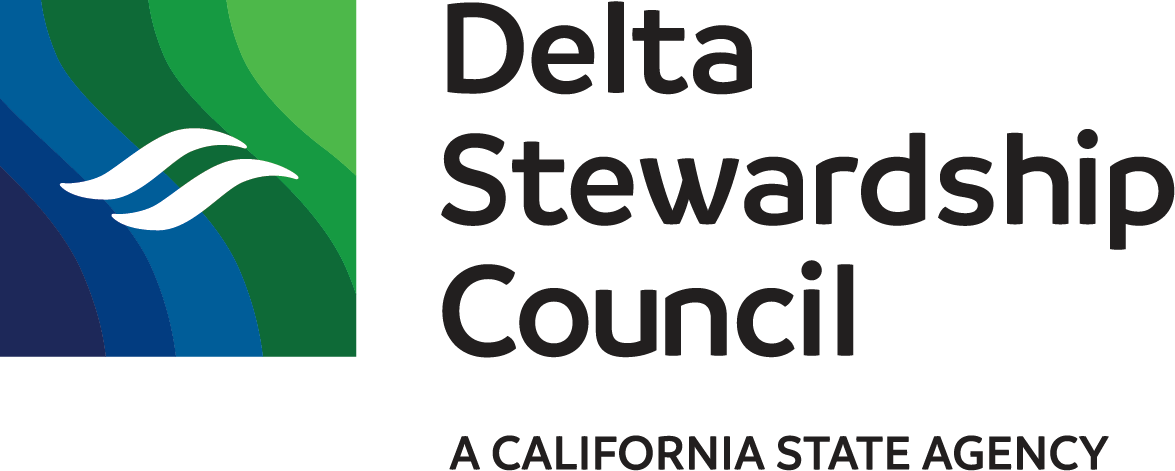
Transformations to be proud of
June 27, 2023
By Science Funding Program Manager Dylan Stern
As we celebrate Pride Month, I want to share a story of remarkable transformations. Last month I gladly seized the opportunity to tour the newly upgraded Sacramento Regional Sanitation District (Regional San) wastewater treatment plant to commemorate the completion of its EchoWater Project. I first toured the Regional San facility six years ago, soon after the Delta Stewardship Council’s Delta Science Program funded Operation Baseline, a research pilot project to document the before and after effects of the plant’s upgrade on the Sacramento-San Joaquin Delta.
As I look around today and see all the changes, I realize how profound this major transformation is for me, professionally and personally. As the Council’s contract manager for research studies on the effects of the EchoWater Project, I’ve witnessed the pivotal role our Operation Baseline played toward establishing a “baseline” of nutrients and their impact on the ecosystem. While at the same time, I have gone through my own personal transformation as a transgender man. Today, over six years after I began transitioning, physically, I am very different, and I am finally comfortable in my own skin.
The new facility, which looks nothing like its former self, has undergone a massive upgrade – with an impressive new treatment process. Of note is the new biological nutrient removal process – the series of tanks that depend on a curated ecosystem of microbes to lower nutrient levels in the water. The treated wastewater no longer contains excess nutrients thought to be detrimental to Delta organisms. Moreover, the facility will soon produce 16 billion gallons of recycled water annually for agriculture and habitat benefits. It’s a great example of collaboration and using the best possible science. Seeing the transformation firsthand brought me back to the beginning of my journey with Regional San and the EchoWater Project and who I was back then, striving to lean into my true identity.
Decades ago, the Delta experienced a rapid decline in the ecosystem, native species, and flow, the effects of which are still seen today. Excess levels of nitrogen and contaminants, predominantly from partially treated wastewater, were identified as two key potential factors causing the Delta declines, leading to permit requirements in 2010 that would cost $1.7 billion to transform the Sacramento Regional Sanitation District wastewater treatment plant.
Beginning in 2016, Delta scientists agreed that an ecological baseline needed to be established before changes to the treatment plant were implemented, just as my doctor and I documented the changes of my personal transition from female to male. I began my transition knowing that I must change even while confronting the uncertainty of how this would impact my environment. At the same time, Regional San was mandated to make major renovations under great uncertainty about the effects on the Delta ecosystem. Dr. Cliff Dahm, the Delta lead scientist from 2015-2017 (and 2008-2012), knew that the Delta Science Program needed to step in quickly to play an important role in filling knowledge gaps and lay the groundwork for testing the numerous and conflicting hypotheses about nutrients in the Delta.
We worked together to find a team of scientists qualified and willing to test new methods and work toward establishing a ‘baseline’ of nutrients. The monitoring status quo could not adequately capture the large-scale or small-scale and quickly changing nutrient and food web patterns. To truly see the impact on nutrients and the food web at the Delta-wide scale, we fostered collaborative science across many disciplines – from water quality to phytoplankton (tiny plant-like organisms foundational to the aquatic food web) to biogeochemical modeling. The suite of research initiated in response was dubbed “Operation Baseline” by the Council’s Executive Officer Jessica Pearson.
The Delta Science Program funded initial research and pilot studies that would identify the highest priority questions and science needs relating to the wastewater treatment plant upgrade and would result in tools to measure and predict how the ecosystem will respond. For example, will the abundance of phytoplankton increase? Will the Delta Smelt follow suit? Will harmful algal blooms (HABs) stop occurring or be less toxic? Collaborating scientists from U.S. Geological Survey, San Francisco Estuary Institute, Cal Maritime Academy, San Francisco State University, and more worked together to think about this through an interdisciplinary lens. Ultimately the Delta Science Program invested over $4 million, in addition to significant investment by our funding partners. This has delivered a baseline of information and new tools to help study the changes. Nutrients interact in complex ways within water, sediment, aquatic vegetation, and phytoplankton. Therefore, we needed innovative, if not risky, approaches to studying nutrients. To improve phytoplankton sampling, researchers tested and deployed ‘fluoroprobe’ sensors that distinguish between the major types of phytoplankton in real-time.
The most valuable pilot (‘MVP’ if you will) study was a sampling strategy to measure nutrients in real-time by boat, with sensors mounted on its hull as it traveled through the Delta. These nutrient measurements provided a snapshot (in beautiful rainbow gradients!) of water quality differences across the entire Delta, from West Sacramento to the Carquinez Strait. This data was leveraged to improve linked hydrodynamic-biogeochemical models, which enable science-based decisions for large-scale management actions (like flow actions or the operational of tidal gates). Like the EchoWater Project, many large consequential decisions must be made without knowing exactly what will happen. That’s why it’s important to use science-based support tools to guide decision-making AND to measure the ‘before’ and ‘after’ of any action. Even better if the data collectors work hand-in-hand with the modelers and resource managers. Management thinker Peter Drucker is often quoted as saying, “You can’t manage what you can’t measure.” Our ability to accurately model future scenarios, from climate change to restoration projects, and the potential effect on the ecosystem is tied directly to the amount and quality of data we collect. If the enhanced data collection and modeling work continues, we will ultimately be able to discern the effects of the EchoWater Project on the Delta ecosystem. That statement would not be true without Operation Baseline.
As far as a no-regrets transformation goes, the Delta’s waters are objectively cleaner, and I couldn’t be happier living my authentic self. More changes will surely come, and I am proud to say that we will be better positioned to learn and make informed decisions under less uncertainty than we ever have before.
About the Author

Dylan Stern (He/Him/His)
Program Manager I for Science Funding Processes
Dylan Stern has worked at the Delta Science Program, part of the Delta Stewardship Council, since 2015. A proud civil service scientist, he is particularly interested in the intersection of water quality, ecology, and water supply in the complex Delta. He was previously an environmental scientist at Tetra Tech and a staff scientist at Bachand & Associates. He received a Master of Science in environmental science and management from the University of California, Santa Barbara, and a Bachelor of Science in environmental science from California State University, Chico. When he isn’t working, Dylan enjoys drawing, baking, and spending time with his daughter.

